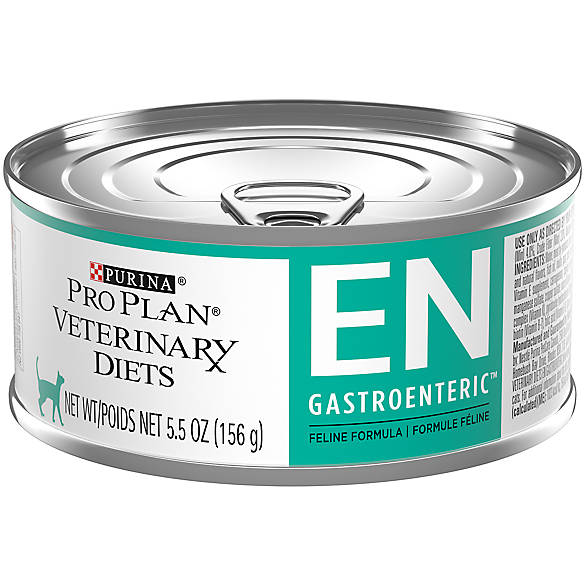For dogs or cats, nutrition is an important part of their health and wellbeing. Having a balanced diet helps support vital functions in the body, support growth, and encourage longevity. Nutrition also plays a significant role in those with illness and health conditions. Certain types of diets may be used to help control problems associated with a disease and may accompany medications or other treatments. Veterinarians may choose a therapeutic diet for your dog or cat to help manage a condition or disease they have been diagnosed with.
Purina ProPlan Veterinary Diets
Purina Veterinary Diets are therapeutic diets that contain certain types of nutrients and balanced levels of ingredients. They are formulated to help provide nutritional support during the course of treatment options prescribed by your veterinarian. VetRxDirect now offers a variety of Purina Veterinary foods for your dog and cat.
 Purina ProPlan Critical Nutrition provides nourishment for dogs and cats recovering from illness or surgery. CN is formulated with key nutrients as well as high levels of fat and protein to support recovery and maintain body mass. It contains additional antioxidants to help reduce oxidative stress and encourage health and functions of the immune system. CN is easily digested and has a smooth texture for syringe or tube feeding. High palatability makes it ideal for dogs and cats with reduced appetite.
Purina ProPlan Critical Nutrition provides nourishment for dogs and cats recovering from illness or surgery. CN is formulated with key nutrients as well as high levels of fat and protein to support recovery and maintain body mass. It contains additional antioxidants to help reduce oxidative stress and encourage health and functions of the immune system. CN is easily digested and has a smooth texture for syringe or tube feeding. High palatability makes it ideal for dogs and cats with reduced appetite.
Purina ProPlan NF is a diet designed for cats with kidney disease, renal failure, or sodium restrictions. NF is formulated with lower levels of sodium, phosphorus, and protein. It may decrease waste products produced by the body, reduce kidney workload and damage, and increase urine pH. It also contains additional potassium, B complex vitamins, and omega fatty acids for complete and balanced nutrition for your cat.

 Purina ProPlan DM is specifically designed for cats with diabetes. DM is made of low levels of carbohydrates and high levels of protein. It may promote gluconeogenesis, a process in the body that converts protein to glucose. This allows for a more steady release of glucose and may lead to a reduced insulin requirement. It also contains additional antioxidants and omega 3 and 6 fatty acids.
Purina ProPlan DM is specifically designed for cats with diabetes. DM is made of low levels of carbohydrates and high levels of protein. It may promote gluconeogenesis, a process in the body that converts protein to glucose. This allows for a more steady release of glucose and may lead to a reduced insulin requirement. It also contains additional antioxidants and omega 3 and 6 fatty acids.
Have you ever used a therapeutic diet for your dog or cat? Let us know your thoughts, leave us a comment below!
*Purina ProPlan Veterinary Diets require prescription authorization from your veterinarian.











/scared-puppy-GettyImages-164154580-577182243df78cb62c967b53.jpg?resize=358%2C241&ssl=1)



















